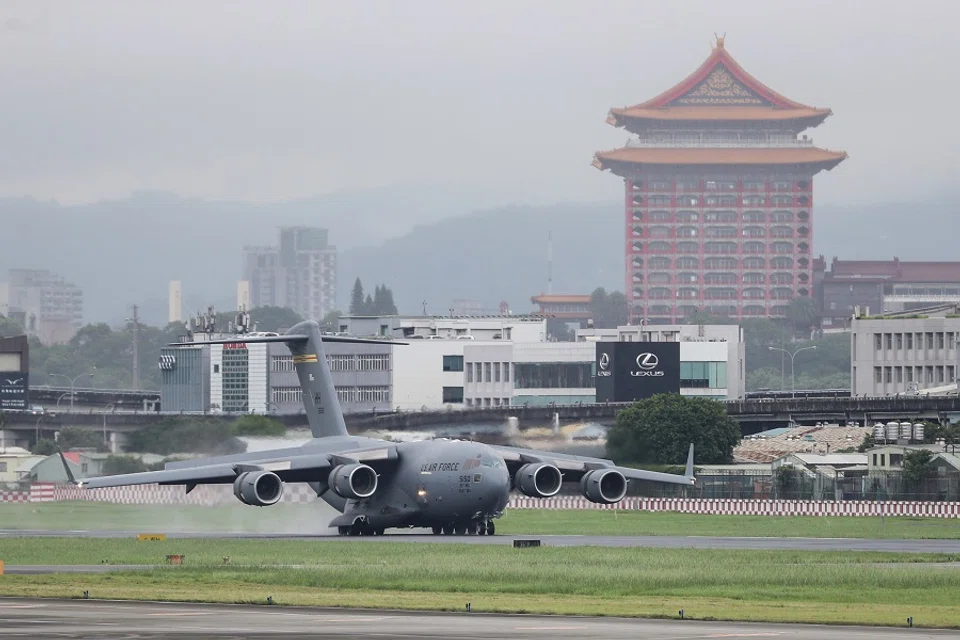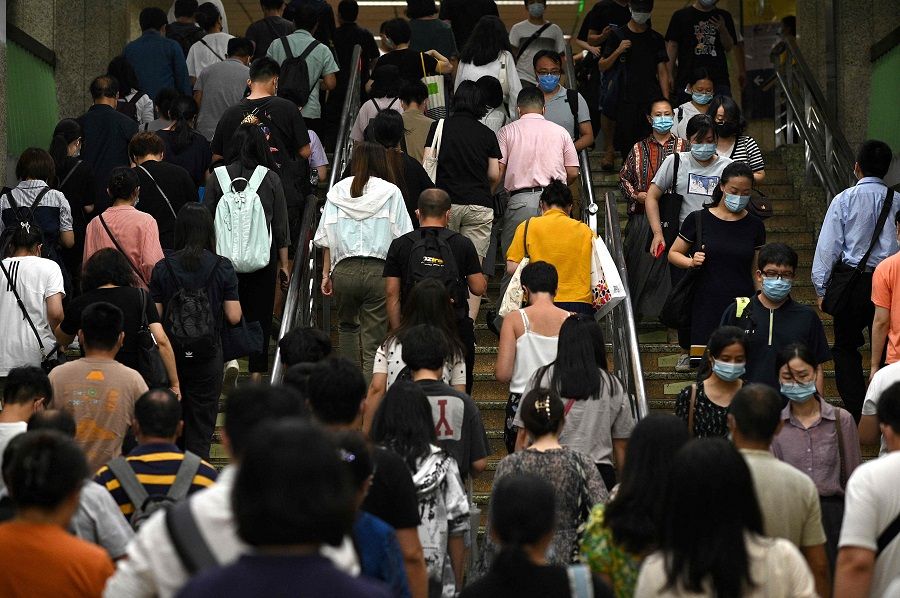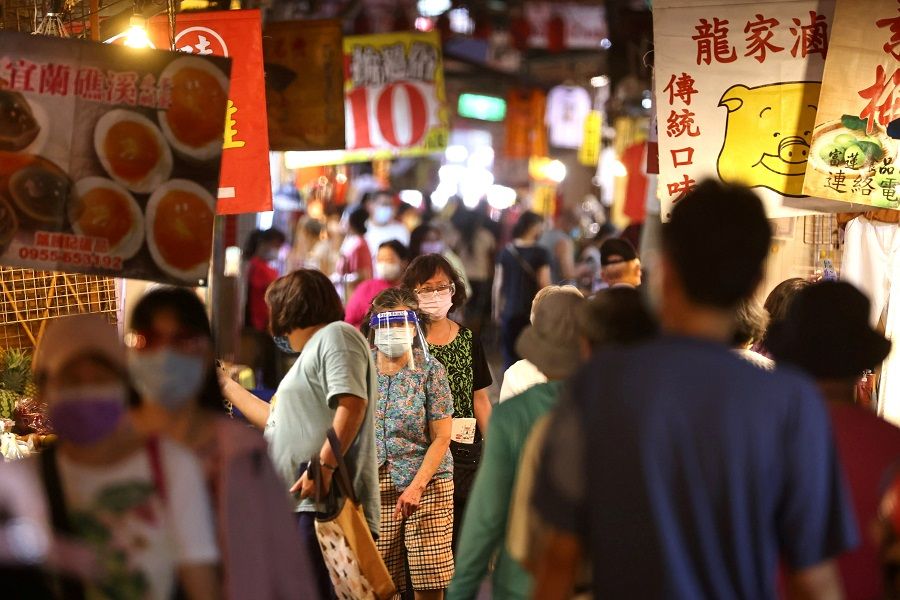More mainland Chinese elites supporting armed unification with Taiwan: A cause for concern?

Since the Democratic Progressive Party (DPP)'s Tsai Ing-wen took power in Taiwan in 2016, tensions between Taipei and Beijing have been on the rise. Washington's increasing support for Taipei, first through the Trump administration and then the current Biden administration, has complicated and deteriorated their already declining relations with Beijing.
While the Chinese government has been trying to contain improving Taiwan-US cooperation with diplomatic, political, economic, and even military manoeuvres, Chinese society at large seems to be losing patience amid the growing cry for armed unification with Taiwan.
Popular support for armed unification is a typical case of popular nationalism in China, which many observers believe is a double-edged sword for Beijing. While it may justify and provide support for Beijing's foreign policies, including its Taiwan policy, the radicalisation of popular nationalism may impose unwanted pressure on Beijing too. Therefore, Beijing has been carefully monitoring and managing popular nationalism, such as popular support for armed unification.
Growing support in mainland China for armed unification with Taiwan
What percentage of mainland Chinese supports armed unification? More specifically, who supports armed unification and why? A randomly sampled mobile phone survey conducted in 2019 in nine major Chinese cities, including Beijing, Shijiazhuang, Xi'an, Wuhan, Chengdu, Nanning, Kunming, Guangzhou and Xiamen, reveals some new and deeper findings.
In terms of the proportion of Chinese supporting armed unification, previous surveys showed significantly divergent findings: While a group of Taiwanese scholars found that only 6% of respondents were pro-armed unification in 2013 in a ten-city survey, an online survey by two Chinese institutes found the percentage to be 85.1% in 2016.

Among the Chinese public, there are two types of support for armed unification.
The first type is to support the government's peaceful unification policy with armed unification under certain conditions, as specified in the Anti-secession Law, which may be called conditional armed unification. The other type is to support armed unification at the earliest opportunity, as it is believed that the peaceful unification policy has failed to get Taiwan closer to China, and consequently, it can only be unified with China by force.
Obviously, the second type is more radical than the first one, and therefore, may be called radical nationalism/armed unification. The 6% of support in the 2013 survey might indicate radical nationalism, and the 85.1% of support in the 2016 online survey might be derived from a non-random and biased sample, a usual problem of online surveys.
To encompass these two types of support for armed unification, respondents in the 2019 survey were asked: Do you agree that Taiwan should not be unified by force under any circumstances? (请问您同意 "任何情况下都不应该使用武力来统一台湾" 这个说法吗?)
If the respondent answers yes, it means she or he does not support armed unification at all and could even be opposing the government's conditional armed unification; if the answer is no, it means she or he supports either the government's armed unification as the last resort (i.e., the first type of support) or armed unification at the earliest opportunity (i.e. the second type of support).
The survey shows that 53.1% of the respondents support armed unification, 39.1% oppose it and 7.8% gave an indecisive "I don't know".
...those who are male, better educated, high-income earners, Communist Party members, urban hukou (户口, household registration) holders, more socially active, and who hold privileged occupations tend to be more in favour of armed unification...
Recent survey shows Chinese elites tend to be pro-armed unification
Further statistical analysis of the survey data shows that those who are male, better educated, high-income earners, Communist Party members, urban hukou (户口, household registration) holders, more socially active, and who hold privileged occupations tend to be more in favour of armed unification than those who are female, less educated, middle- and low-income earners, non-Communist Party members, rural hukou holders, socially less active and who hold less privileged occupations.
These findings challenge some previous studies which showed that Chinese elites, such as the better educated, were more liberal and less nationalistic. It could be the case that Chinese elites have become more nationalistic since those studies were completed, or that they are less nationalistic on issues other than armed unification.

The 2019 survey also finds that those with stronger national pride, particularly those who believe that mainland China is doing better than Taiwan in politics and economy, are more pro-armed unification. Apparently, public support for armed unification in urban China is grounded in those who are privileged, take pride and have confidence in the country. This might reveal the social base of Beijing's wolf warrior diplomacy and also partly explain the sustainability of the trend, as it might have received support from political, economic and social elite groups, who are the minority but with larger political, economic and social influence than non-elite ones.
...residents of the only two coastal cities taking part in the survey, Guangzhou and Xiamen, are much less pro-armed unification than those of the seven inland cities.
Bad impression of Tsai administration fuels negative feelings
In contrast to previous findings and popular belief, those who understand Taiwan better are more pro-armed unification. For example, those who are interested in Taiwan news, correctly answer that Tsai is Taiwan's president, have been to Taiwan, and have in-person contact with Taiwanese, are more pro-armed unification.
Mainland China media's increasingly negative coverage of Taiwan since 2016, particularly of President Tsai and her administration, may have contributed to this opinion. Indeed, the survey also finds that the unfavourable view of the Taiwanese government significantly contributes to support for armed unification.
Interestingly, residents of the only two coastal cities taking part in the survey, Guangzhou and Xiamen, are much less pro-armed unification than those of the seven inland cities.

The two cities' geographic, economic and cultural proximity to Taiwan may be the main contributor to their residents' weaker nationalistic stance on Taiwan. A war against Taiwan will impact the economies and daily lives of these two cities much more severely than it would the other seven cities.
Moreover, as most Taiwanese are descendants of immigrants from Guangdong and Xiamen, these two cities' residents might share a stronger cultural identity and even have kinship ties with the Taiwanese, thus reducing their support for armed unification too.
Amid China's military exercises around Taiwan and heated online discussion about armed unification in mainland China, 53.1% pro-armed unification rate does not seem high, especially when it includes those supporting the government's peaceful unification with conditional armed unification. The rest of the sample, 46.9%, are not in line with the government, as they either oppose conditional armed unification or do not know whether to support it or not as the government's position on it is not clear enough.
On the other hand, the survey findings probably suggest that Chinese nationalism is experiencing profound transformation, especially on the Taiwan issue, as more privileged and influential groups have become more nationalistic, as they and the government's views are mutually reinforced. Hopefully, this mutual reinforcement will not lead to the radicalisation of popular nationalism, which is something the government is wary of and has tried to avoid too.
